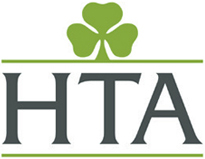Ethical Purchasing Policy Statement
Bury Hill Landscape Supplies Limited was established in 2011 to provide an extensive and expanding range of superior hard and soft landscaping materials to the professional landscape and horticultural trades and industries as well as discerning gardeners.
Bury Hill Landscape Supplies Limited are committed to this policy and will conduct business in an ethical, legal and socially responsible manner. This commitment extends to suppliers and other associated external resources with which we chose to do business. We recognise the responsibility that we share with our suppliers to source products in an ethical manner. We want our customers to be confident that people are treated fairly, are not exploited and are not exposed to unsafe working conditions. Our Ethical Trading Policy requires all our suppliers to comply with our ethical code which is based on the International Labour Organisation (ILO) and national and international laws.
Suppliers shall at all times comply with this code and with the applicable national and international laws, regulations, codes and standards, both in the country in which the supplier works and in the country in which the product and/or services are sourced/provided. Suppliers shall ensure, as far as is reasonably practicable, that their suppliers, agent(s), subcontractors and consultants, who are directly or indirectly involved in the provision of goods and/or services to Bury Hill Landscape Supplies Limited comply with the code.
SUPPLIERS SHALL ENSURE:
Employment is freely chosen
There is no forced, bonded or involuntary prison labour.
Workers are not required to lodge monetary deposits or their identity papers with their employer and are free to leave their employment after reasonable notice.
Freedom of association and the right to collective bargaining respected Workers have the right to join or form trade unions of their own choosing and to bargain collectively.
The employer adopts an open attitude towards the activities of trade unions and their organisational activities.
Workers’ representatives are not discriminated against and have access to carry out their representative functions in the work place.
Where the right to freedom of association and collective bargaining is restricted under law, the employer facilitates and does not hinder the development of parallel means for independent and free association.
Working conditions are safe and hygienic. A safe and hygienic working environment shall be provided, bearing in mind the prevailing knowledge of industry and of any specific hazards.
Adequate steps shall be taken to prevent accidents and injury to health arising out of, associated with, or occurring in the course of work, by minimising, so far as reasonably practicable the causes of hazards inherent in the working environments.
Workers shall receive regular recorded health and safety training.
Workers are provided with access to clean toilet facilities and to safe drinking water, and, if appropriate sanitary facilities for food storage shall be provided.
Accommodation where provided, shall be clean, safe and meet the basic needs of the workers.
A senior management representative shall be responsible for Health and Safety.
Child labour shall not be used
There shall be no use of child labour. In the event of any child found to be performing child labour, they shall be removed from the workplace immediately. The supplier shall then participate and contribute to the provision for the transition of the child to enable her or him to attend quality education until no longer a child.
Young persons under 18 shall not be employed at night or in hazardous conditions.
These policies and procedures relating to Child Labour shall conform to the provisions of the relevant International Labour Organisation (ILO) Standards.
Remuneration
Wages and benefits paid for a standard working week meet, at a minimum, national legal or industry benchmark standards, whichever is higher. In any event wages shall always be enough to meet basic needs and to provide some discretionary income.
All workers shall be provided with written and understandable information about their employment conditions including information with respect to wages before they enter employment, and about the particulars of their wages for the pay period concerned each time they are paid.
Deductions from wages as a disciplinary measure shall not be permitted nor shall any deductions from wages not provided for by national law be permitted without the expressed permission of the worker concerned. All disciplinary measures should be recorded.
Working hours are not excessive
Working hours must comply with national laws, collective agreements, and the provisions defined in the clauses below, whichever affords the greater protection for workers. Working hours, excluding overtime, shall be defined by contract, and shall not exceed 48 hours per week*
All overtime shall be voluntary
Overtime shall be used responsibly, taking into account all the following: the extent, the frequency and hours worked by individual workers and the workforce as a whole. It shall be used to replace regular employment.
Overtime shall always be compensated at a premium rate, which is recommended to be not less than 125% of the regular pay rate.
The total hours worked in any 7 day period shall not exceed 60 hours, except where covered by the clause below. Working hours may not exceed 60 hours in any 7 day period only in exceptional circumstances where all the following are met:
• This is allowed by national law
• This is allowed by a collective agreement freely negotiated with a workers’ organisation representing a significant portion of the workforce
• Appropriate safeguards are taken to protect the workers' health and safety, and the employer can demonstrate that exceptional circumstances apply such as unexpected production peaks, accidents and emergencies.
• Workers shall be provided at least one day off every 7 day period or, where allowed by national law, 2 days off in every 14 day period.
*International standards recommend the progressive reduction of normal hours of work, when appropriate, to 40 hours per week, without any reduction in workers’ wages as hours are reduced.
No discrimination is practised
There is no discrimination in hiring, compensation, access to training, promotion, termination or retirement based on race, national origin, religion, age disability, gender, marital status, sexual orientation, union membership, or political affiliation.
Regular employment is provided
To every extent possible work performed must be on the basis of recognised employment relationships established through national law and practice.
Obligations to employees under labour or social security laws and regulations arising from the regular employment relationship shall not be avoided through the use of labour-only contracting, sub-contracting and home-working arrangements, or through apprenticeship schemes where there is no real intent to impart skills or provide regular employment, nor shall any such obligations be avoided through the excessive use of fixed- term contracts of employment.
No harsh or inhumane treatment is allowed
Suppliers provide a workplace in which any form of harassment is unacceptable. Examples include physical abuse or discipline, the threat of physical abuse or sexual or other harassment and verbal abuse or other forms of intimidations.
Entitlement to work
Only workers with a legal right to work in the country should be employed.
For both workers and agency workers, original documents should be reviewed and then returned to workers to verify the right to work.
Labour Providers
Labour providers should only supply workers registered with them.
The policy review date is 01.07.2024.
Signed: David de Vere (Director)
Date: 01.07.2021





